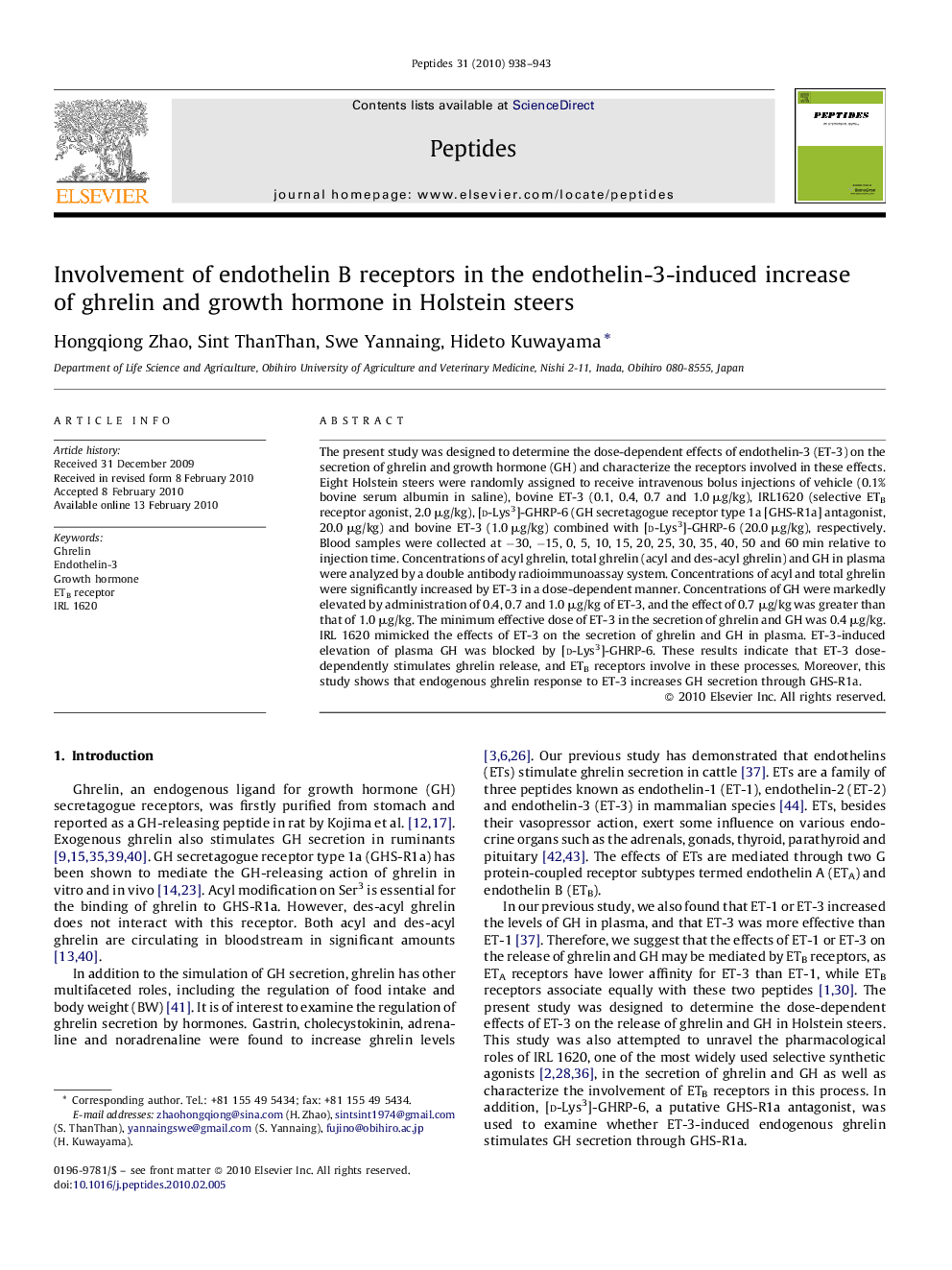| Article ID | Journal | Published Year | Pages | File Type |
|---|---|---|---|---|
| 2006763 | Peptides | 2010 | 6 Pages |
Abstract
The present study was designed to determine the dose-dependent effects of endothelin-3 (ET-3) on the secretion of ghrelin and growth hormone (GH) and characterize the receptors involved in these effects. Eight Holstein steers were randomly assigned to receive intravenous bolus injections of vehicle (0.1% bovine serum albumin in saline), bovine ET-3 (0.1, 0.4, 0.7 and 1.0 μg/kg), IRL1620 (selective ETB receptor agonist, 2.0 μg/kg), [d-Lys3]-GHRP-6 (GH secretagogue receptor type 1a [GHS-R1a] antagonist, 20.0 μg/kg) and bovine ET-3 (1.0 μg/kg) combined with [d-Lys3]-GHRP-6 (20.0 μg/kg), respectively. Blood samples were collected at â30, â15, 0, 5, 10, 15, 20, 25, 30, 35, 40, 50 and 60 min relative to injection time. Concentrations of acyl ghrelin, total ghrelin (acyl and des-acyl ghrelin) and GH in plasma were analyzed by a double antibody radioimmunoassay system. Concentrations of acyl and total ghrelin were significantly increased by ET-3 in a dose-dependent manner. Concentrations of GH were markedly elevated by administration of 0.4, 0.7 and 1.0 μg/kg of ET-3, and the effect of 0.7 μg/kg was greater than that of 1.0 μg/kg. The minimum effective dose of ET-3 in the secretion of ghrelin and GH was 0.4 μg/kg. IRL 1620 mimicked the effects of ET-3 on the secretion of ghrelin and GH in plasma. ET-3-induced elevation of plasma GH was blocked by [d-Lys3]-GHRP-6. These results indicate that ET-3 dose-dependently stimulates ghrelin release, and ETB receptors involve in these processes. Moreover, this study shows that endogenous ghrelin response to ET-3 increases GH secretion through GHS-R1a.
Related Topics
Life Sciences
Biochemistry, Genetics and Molecular Biology
Biochemistry
Authors
Hongqiong Zhao, Sint ThanThan, Swe Yannaing, Hideto Kuwayama,
